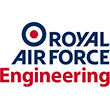Aerospace engineer
A career in aerospace engineering will see you working with cutting-edge technology designed for flight with exciting opportunities in the UK and internationally
Aerospace is an industry and there are many disciplines of engineering that fall within the field.
Aerospace engineering broadly focuses on the research, design, development, maintenance and testing of equipment that is designed for flight in the air and in space. This covers a broad area that is constantly growing but can include:
- civil and military aircraft
- missiles
- satellites
- space vehicles
- weapons systems.
Work is also carried out on the individual components that make up the aircraft and systems.
You'll be concerned with improving flight safety, fuel efficiency, speed and weight, as well as reducing system costs and using developing technologies to meet customer needs. The role increasingly addresses the environmental impact of air travel.
Types of aerospace engineer
You can specialise in a particular area such as:
- aerodynamics
- avionics
- materials and structures
- propulsion
- systems integration.
Under the umbrella term of aerospace engineering, job titles can really vary. You could find opportunities with many different titles including:
- systems engineer
- resilience engineer
- mechanical engineer
- test engineer
- in-service solution design engineer.
These are just some examples as many other job titles exist. The best way to find out about opportunities is by conducting regular live job searches on general job boards using key words such as 'aerospace AND engineer'.
Responsibilities
Tasks vary depending on your specialist area and employer, but you may be required to:
- apply the principles of science and technology to create a broad spectrum of airborne equipment, components and related support equipment
- research and develop design specifications and use computer-aided design (CAD) software to create plans
- supervise the assembly, integration and installation of equipment
- take part in flight-test programmes to measure take-off distances, rate of climb, stall speeds, manoeuvrability and landing capacities
- resolve issues that arise during the design, development and testing processes
- maintain aircraft or other equipment for full operation including making regular inspections, maintenance, repairs and servicing
- measure and improve the performance of aircraft, components and systems
- modify designs to improve safety features or minimise fuel consumption and pollution
- investigate aircraft accidents
- collate information, interpret data and publish the results of specific projects in technical report form
- communicate technical and regulatory advice to clients, teams, suppliers and other professionals within the aerospace industry.
Salary
- Starting salaries for aerospace engineers range from £25,000 to £34,000.
- With experience this can rise to between £30,000 and £50,000, depending on the level of your expertise.
- At senior levels, particularly if you gain chartered status, you can expect a salary of £45,000 to £80,000+.
You may be offered a starting salary at the higher end of the band if you have a Masters or research qualification. Larger employers typically offer larger salaries. Higher salaries tend to be advertised for graduate roles requiring some experience as well as a degree which could be gained from a year-in-employment placement or similar.
Income figures are intended as a guide only.
Working hours
You may work 9am to 5pm, but extra hours may be required to complete projects to a deadline. Many employers now offer flexible working options to allow for work life balance, family and caring responsibilities.
You may need to work on an on-call consultation basis, dealing with issues such as a change in the priority of repairs or in case of an emergency investigation.
Working at the forefront of technology makes long career breaks difficult, as you need to keep up to date with industry developments. Self-employment opportunities are limited once in the advanced stages of your career. If you gain chartered status, you may be able to work on a consultancy basis.
Related case studies
What to expect
- You may be based in offices, manufacturing facilities, air bases, military locations, or aeronautical laboratories. Travel to sites and other industrial companies to examine or test equipment or aircraft may be required.
- Design work will involve the use of sophisticated computer visualisation tools and software.
- Jobs are widely available in several locations in the UK and abroad. The UK has a very advanced aerospace industry, which is at the forefront of technological and scientific development.
- Some roles allow for a proportion of work to be delivered from home. This increases the flexibility of which locations you can apply to work in as travel is not be required every day.
- As women are still underrepresented in this industry, there are often extra initiatives and support available to support female applicants with applying for jobs and finding out about what they involve. Such support is advertised on graduate job boards and societies such as Women's Engineering Society (WES) and WISE.
- You'll need to show dedication and enthusiasm. Workloads vary day-to-day, and it can be a stressful job when deadlines approach. The work must be precise, as the consequences of human error can be serious.
Qualifications
Many aerospace companies offer graduate training schemes in engineering which require entry at Level 6, this can be achieved by completing a university degree or a degree apprenticeship.
Degrees and degree apprenticeships are available in aeronautical or aerospace engineering, but employers may accept other relevant subjects such as mathematics or physics. Check job adverts for specific requirements but an engineering, numerical or scientific degree or degree apprenticeship is usually required.
You can also enter the industry at a lower level through either the apprenticeship route or through completing a college course in engineering at Level 3 to 5. With entry at this level however, you would require further study to become a qualified engineer but this may be supported by your employer.
It isn't essential for you to have a pre-entry postgraduate qualification but a Masters in aeronautical or aerospace engineering can be useful if your first degree is in a different subject.
The Royal Aeronautical Society's (RAeS) Careers in Aerospace offers a guide to entry routes and roles in the industry.
It's useful if your first degree or Masters is accredited by a relevant professional body, such as the RAeS, as this can help you achieve the status of incorporated or chartered engineer at a later date. You can find a list of accredited courses at Engineering Council - Accredited Course Search or at the Royal Aeronautical Society's Academic Accreditation listings.
Alternatively, search for postgraduate courses in aerospace engineering.
Skills
You'll need to show:
- strong technical knowledge of aerospace systems and manufacturing
- the ability to think creatively and be innovative, particularly when developing designs
- problem solving and analytical skills for dealing with repairs
- meticulous attention to detail and a methodical approach to work
- a level of commercial awareness and knowledge of the aerospace industry
- communication and teamworking skills when dealing with colleagues
- the ability to work to deadlines with self-motivation
- organisational and time management skills
- the ability to cope with new demands and new problems
- a love of aviation, aircraft and flight technology.
Language skills may be useful because of joint ventures with international companies and the possibility of travel to company sites outside the UK. Security clearance is required for defence work, which can be difficult to obtain. Find out more at UK Security Vetting. Due to the technical nature of this job, employers may stipulate normal colour vision as an entry requirement.
Work experience
It's advisable that you gain some pre-entry experience. Many aerospace engineering degrees include year-in-industry placements, which take place between second and third years of an undergraduate degree. Employers often use this experience to identify potential graduate recruits.
You can also get experience through vacation work or 12-week summer placements which usually take place at the end of your second year. Contact major aerospace companies to find out about opportunities.
Find out more about the different kinds of work experience and internships that are available.
Advertisement
Employers
Aerospace engineers are employed by:
- aircraft and aircraft component manufacturing companies
- airline operators
- the armed forces, including the Army, the Royal Navy and the Royal Air Force (RAF)
- government research agencies such as the Ministry of Defence (MoD), the Defence Engineering and Science Group (DESG) and the Department for Business, Energy and Industrial Strategy (BEIS)
- the further and higher education sectors
- regulators such as the Civil Aviation Authority (CAA).
It's possible to undertake sub-contract work, which gives you the opportunity to experience the job in different companies and countries.
Look for job vacancies at:
You should also look at aerospace company websites to find out what opportunities they have. Examples include:
These are some of the big, well known aerospace organisations but there are many smaller and new companies that emerge each year that can be just as exciting. You can often find the smaller companies at university careers fairs.
There are a number of recruitment agencies dedicated to the engineering/aerospace industry, which may be able to help you find work.
Aerospace engineer jobs
Professional development
Graduate training schemes are often available with large aerospace companies. Some schemes include placements at partner companies and provide you with a range of experience.
Smaller employers typically provide training on the job and you'll usually be supervised by a more experienced colleague.
You may decide to work towards incorporated (IEng) or chartered (CEng) engineer status and many employers encourage this. These internationally-recognised qualifications are awarded by the Engineering Council and achieving them improves your career prospects and earning potential.
You'll need to be a member of a professional institution such as RAeS, and you must be able to demonstrate a certain level of competence and professional activity. This may involve further postgraduate study, project management, report writing and short training courses. For more information see Engineering Council - Professional Registration.
It's important to stay up to date with key developments in this fast-moving sector and becoming a member of a relevant organisation can help with this. RAeS provides conferences, training courses and specialist groups to help with continuing professional development (CPD).
Employers usually offer short courses, either in-house or externally, to meet specific training needs. Larger companies may invest not only in technical training, but also training in specialist topics including:
- information technology
- leadership and change management
- project management.
Career prospects
There are many opportunities for career development in the aerospace industry. For example, you may move into a senior engineering position, where you oversee the work within your department or undertake a project management role.
It's also possible to specialise in areas such as aerodynamics, propulsion or avionics. You could choose to move into a different area of aviation, such as a commercial role in sales, training or lecturing.
The aerospace industry has a strong track record of investing in its workforce through funding and supporting employee training, as well as encouraging membership of relevant engineering institutions such as:
Alternative careers
Related jobs and courses




graduate job
Engineer Officer (Aerosystems)
- Royal Air Force (2 other jobs)
- £32,001-£34,500
- Various locations


